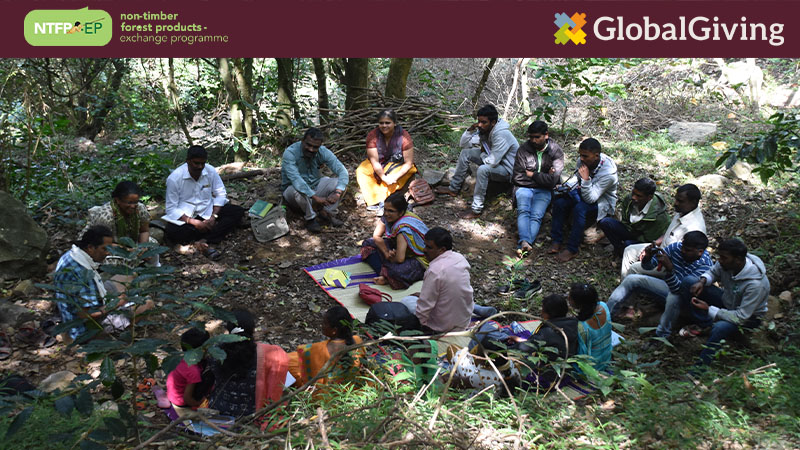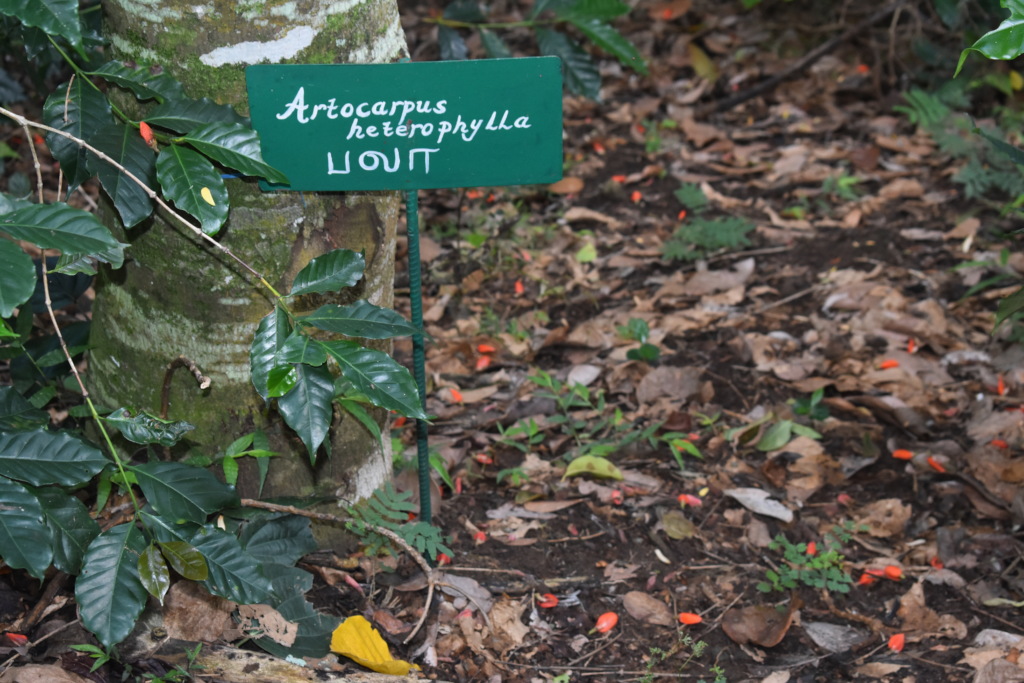Work in the nursery for wild food plants are on-going. Wild food plants have been raised or cultivated in the nursery from seed and are housed at the Adukkam Resource Centre. These include the very little known plants Olax scandens and Cansjhera rheedii, as well as some bamboo (Dendrocalamus strictus). Some of these food plants are ready to be planted in other forest sites with the help of indigenous communities.
These months the effort has been to introduce lesser known plants that can be harvested from the wild. These include: Caralluma (stems), Costus (rhizomes), Eryngium/Celastrus/Bauhinia/Solanum/Amaranthus (leaves), as well as bulbils of Dioscorea. Some of these photos are available and attached in this report.
Some effort was also made to leave behind some food sources for birds, especially the vulnerable Common Grey Hornbill, and the Hill Myna (Gracula religiosa). These foods sources are essentially species of Ficus, Syzigium and Grewia.
Due to the COVID-19 situation, the students were limited. The pandemic, along with incessant rains in the areas, have prevented further workshops with the Adivasi people. The team plans to conduct workshops within the next months.
We invite you to watch this video about the Adukkam Resource Centre and the impact of the wild food gardens, nursery work and training that have been conducted thus far. Such exchanges among women, youth and Adivasi people on lesser-known food plants strengthen knowledge, systems, and practices and have rejuvenated forest food traditions among Adivasi communities.
Support our work with Adivasi women
We continue to solicit support to further our work on nurseries and support Adivasi women’s activities on inter-generational learning. To date, we have raised $2,020 for the project. Donations are most welcome to help in our work with Adivasi women training youth on forest foods. Your contribution will help us cover training materials and costs for work in the nursery and the planned workshops.
Please visit our page to learn more and to find out how you can be part of this on-going initiative on forest foods in India.

Written by Madhu Ramnath, with Ashish Kumar – NTFP-EP India




